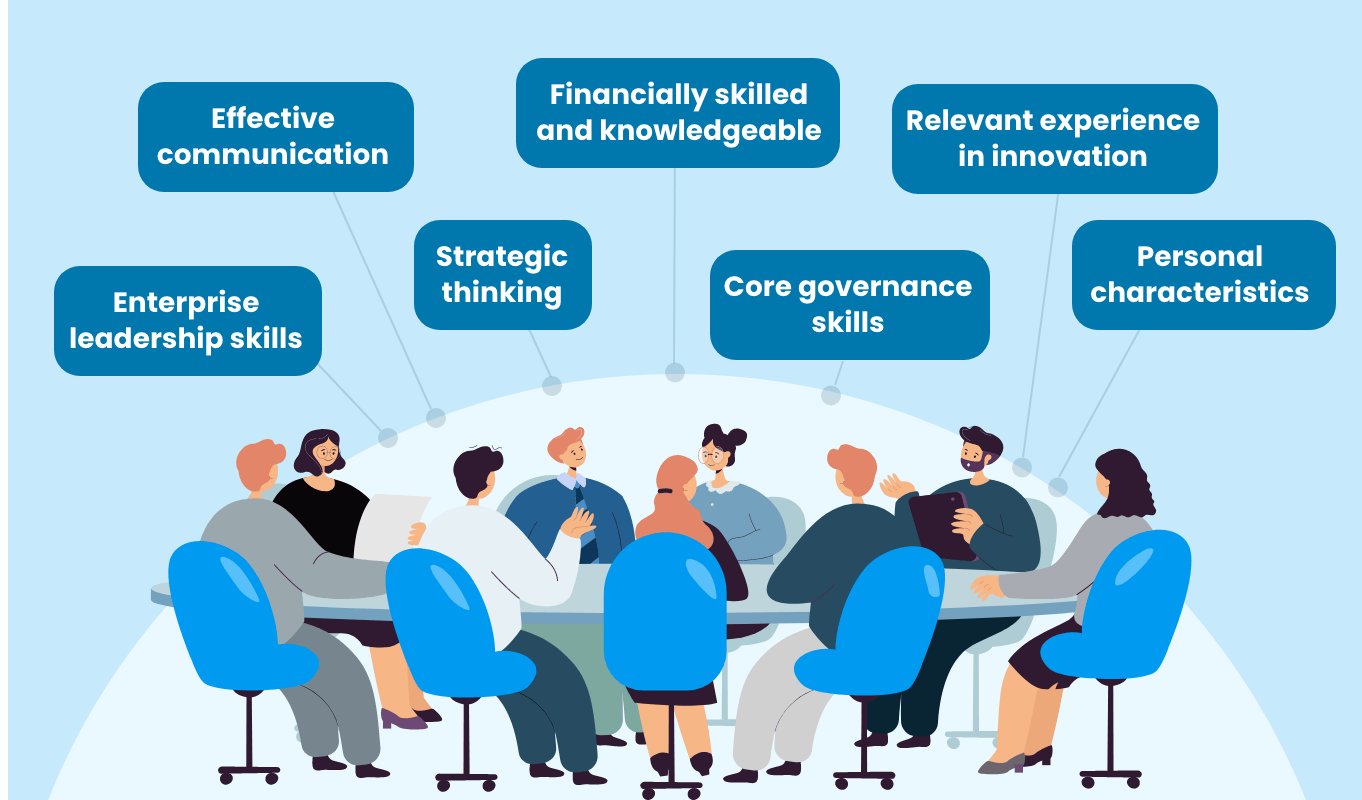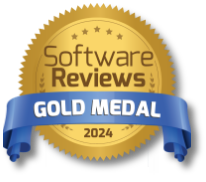Every corporation has a board of directors that represents shareholder interests and provides guidance to the entity’s executive team. Establishing a board of directors is a general requirement for many public companies. Private and nonprofit organizations, however, are not required to have a board but it is a highly recommended move to better steer the business. Research suggests that 58% of the board of directors are more likely to work at private companies compared to public and government organizations.
The board of directors is primarily in charge of assessing and approving management recommendations and strategies concerning the corporation’s future. Many companies opt to have their boards more future-focused, while the management handles the daily operations. In a survey, 36% of the board’s future-focused decisions are allotted to capital allocation and 33% is devoted to succession planning.
Read on to know more about how the board of directors works and the group’s fundamentals.
The Board Election Process
Fears of recession, rising global inflation, and other catastrophic environmental tragedies caused the business landscape to shift yet again. As these lead to uncertainties for many businesses, the guidance of the boards of directors is vital more than ever. One effective way to ensure the board can navigate through such issues is board refreshment, which is not practiced by most companies.
In fact, 62% revealed their boards do not follow a retirement policy and 70% would not adopt term limits. Companies that practice regular board refreshments, however, often have fresher perspectives and strategies concerning the company’s future. This is where the board election comes in.
Acquiring new members on the board is never a simple process. In some cases, for-profit boards elect new directors using a Nominating and Governance Committee (NGC) — which typically includes current members and representatives chosen by shareholders. Non-profits, on the other hand, typically opt for a more inclusive and open approach where all members can submit their own names for consideration.
Procedures for Conducting Board Election
- Define guidelines and by-laws, which pertain to the conduct of the election.
- Appointment of the Nominating Committee (must be formed no later than six months prior to the election).
- Solicit nominations directly from the membership or the Chair of each section, to be handled by the Nominating Committee.
- Review the composition of the existing board and identify the number of open positions.
- Propose and announce the slate of candidates at least four weeks prior to the board election.
- Members will receive information on each candidating and voting instructions, then submit their votes before the given deadline.
- Announcement of the election results (guidelines may be amended).
Two Voting Methods for Electing New Board Directors
- Preferential voting — This approach requires voters must rank the candidates based on their preferences. The candidate that got the majority of first-preference votes gets elected. Preferential nominations are mostly utilized for multi-winner elections.
- Cumulative voting — In this voting method, voters can cast more than one vote for any candidate. Voters, however, are given a certain number of votes which is typically equal to the number of vacancies.
Required Skills and Competencies for Elected Directors

Many board directors are becoming increasingly critical of the performance of their peers, with 48% saying one or more members should be replaced. In choosing new directors for the board, these qualities should be considered.
- Enterprise leadership skills, or the ability to empower and inspire others like mentioning new leaders.
- Effective communication, which is necessary for representing the company during interactions with other groups.
- Strategic thinking, or the ability to think critically and independently, as well as make informed decisions.
- Financially skilled and knowledgeable, from analytics proposed business to reviewing financial reports for the association.
- Core governance skills, such as understanding of director duties and responsibilities, the ability to determine and manage conflicts, and willingness to fulfill legal responsibilities.
- Relevant experience in innovation, including digital transformation, data and analytics, product development, and new technologies.
- Personal characteristics such as having an ethical character and exhibiting integrity that assures the best interests of the association’s stakeholders.
Note: There are just a few of the attributes of a desirable candidate for the board of directors. Boards are always recommended to consider more based on their own standards, criteria, and board structure.
Structure of the Board of Directors
The structure of a board is generally determined by the bylaws of the organization. Such bylaws define how many members there are, how the directors are elected, and how frequently the board meets. There is no required number of members for an organizational board and may depend on the company and its industry. Organizations promoting diversity, however, set a range of 8 to 12 directors.
As for the term limits of the directors, members usually hold their office for two to six years. Some organizations set their board term limits from 10 up to 15 years. Regardless of the term limit, members are not required to leave once their term is finished.
The company’s bylaws may specify certain conditions, such as full terms being renewable but members are not permitted to serve more than twice in a row. Setting term limits help prevent governance challenges as they can prevent members from acquiring too much power for too long and refreshing the board with new skills and ideas.
Positions on the Board of Directors
Besides the number of members and term limits, there are positions and designations that boards should identify and fill in. Here are some of them:
- Chair — The highest-ranking member of the board, and is responsible for leading the group in their duties and strategic plans.
- Managing director — Elected by the executive directors, managing directors is in charge of overseeing business functioning.
- Executive director — Besides representing the organization’s cause, executive directors are actively involved in business operations and management.
- Non-executive director — Also known as external directors or those who don’t belong to the company, non-executives provide objective advice to the board.
Other common positions in a board of directors include a secretary, a treasurer, and a chief financial officer. Members who do not hold any designation usually volunteer as committee heads.
Roles and Responsibilities of the Board
The board of directors does not only hold the highest authority in the company structure, but it also holds a fiduciary duty to the shareholders. Using their extensive experience and knowledge, members of the board also guide the business forward while overseeing the company’s day-to-day pressures. Other roles and responsibilities of the board include:
- Establish the organization’s vision and values that set the pace for current and future operations.
- Identify business strategic options and plans, and choose which ones are best to be implemented.
- Exercise transparency and accountability to shareholders, taking into account their interests.
Read the complete guide on the roles and responsibilities of the board here.
Importance of Board Management Software

Technology continuously becomes an integral part of an organization’s processes and operations, which extends to the board of directors. By having the right board software, directors can streamline many of their day-to-day duties. If your board often meets virtually, having board management software like Convene can help you make quick decisions and conduct digital voting flawlessly.
Most of these tools also let you create meeting minutes and polls, securely upload and distribute board documents, and manage approvals in a few clicks. Find out more about why board management software is a worthy investment.
Improved Governance
The board of directors needs to be productive and function more efficiently in order to have better corporate governance. With the help of the right board software, directors can enhance their entire board meeting process, from assigning action items to reviewing documents. A board management software does not only improves productivity but also supports good governance and even encourages engagement.
Easier Collaboration
Collaboration is one of the top aspects boards need to achieve good results. Survey tools, voting or polls, and virtual discussions are basics for any modern boardroom. A board management software can provide all this. Such solutions support board members in providing strategic feedback and prompting more interactive meetings. Members can also access and collaborate with board documents (past meeting minutes, audit reports, and strategic plans) anytime, anywhere.
Enhance Security
Companies experience cyberattacks constantly, which is why boards need to prioritize the security of their data and activities such as meetings. Board management software like Convene is ingrained with stringent security features to keep board documents safe and protect the privacy of meetings. Among these features include password policies, multi-factor authentication, role-based access controls, and document copy restrictions and watermarks. Opting for highly secure software means conducting all board business in one place securely.
Convene: Your Go-to Board Governance Software

Instilling good governance is a complex task that is made easy with Convene, a board management software that helps you run your board in the most effective ways. Convene is equipped with robust features enabling easier virtual meetings, agenda building, voting, and secure document management.
What’s more, Convene is professionally designed to help board directors fulfill their duties and responsibilities while mitigating security risks. Discover how Convene can do all this and what amazing features it offers.
Jielynne is a Content Marketing Writer at Convene. With over six years of professional writing experience, she has worked with several SEO and digital marketing agencies, both local and international. She strives in crafting clear marketing copies and creative content for various platforms of Convene, such as the website and social media. Jielynne displays a decided lack of knowledge about football and calculus, but proudly aces in literary arts and corporate governance.


![How to Create a Board Skill Matrix + Template [Free Download]](https://cdn.azeusconvene.com/wp-content/uploads/2024Q3_Jul_Board-of-Directors-Skills-Matrix-Whitepaper-B-Colored.png)








